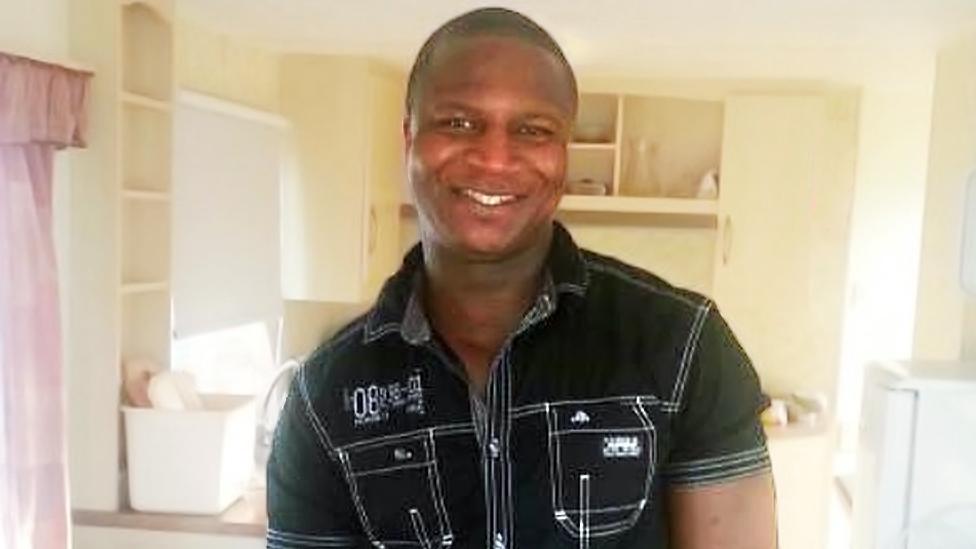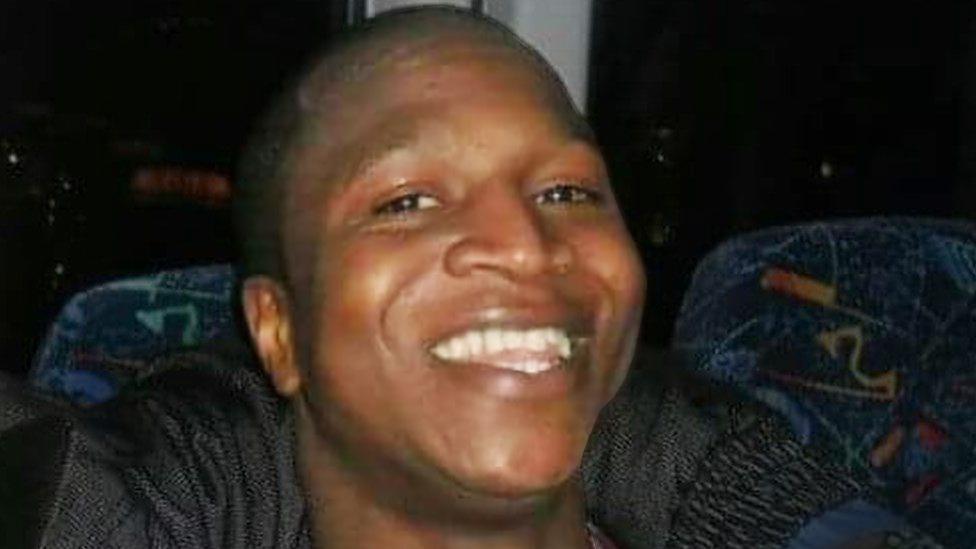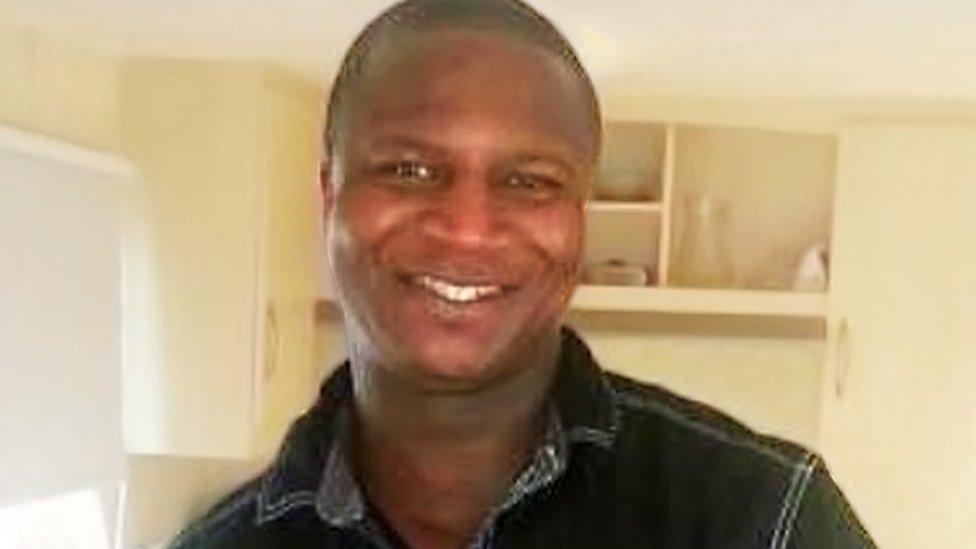Race had to be considered in Bayoh death, says ex-detective
- Published

Sheku Bayoh was training to be a gas engineer and was father to two boys
A retired detective has said "everybody was thinking" race might have been a factor in the death of Sheku Bayoh.
Former Det Ch Supt Lesley Boal said the police had to consider the possibility that Mr Bayoh had been treated differently because he was black.
Other officers have told the inquiry into Mr Bayoh's death there was no sign the police's actions had been racially motivated from the outset.
But Ms Boal said it would have been too early to rule it out.
The retired detective said the theory should have been worked on in the days that followed.
Members of the public called the police after Mr Bayoh was spotted carrying a knife and behaving erratically in Kirkcaldy on 3 May, 2015.
He did not have the knife when police arrived but a violent confrontation followed and the father-of-two was restrained on the ground by six officers.
The 31-year-old lost consciousness and died in hospital.
Ms Boal was the senior detective on call in Scotland and travelled to Kirkcaldy as the investigation got under way.
She appointed Det Supt Pat Campbell as the senior investigating officer because of his rank and the fact that he had never worked in Fife.

Sheku Bayoh died after being restrained by officers in Kirkcaldy
She then became aware that the Police Investigations and Review Commissioner (PIRC) had been given the task of leading the inquiry, with Police Scotland providing support.
Mss Boal said there a delay in PIRC arriving in Kirkcaldy and she had been concerned that they did not have enough investigators.
She shared Det Supt Campbell's frustrations at having to hand over the inquiry to PIRC but the decision had been made.
Ms Boal said one of her hypotheses on the day Mr Bayoh died was that his race had been a factor.
In a statement to the inquiry, she said: "The feeling I got was that everybody was thinking along the same lines as me, that it was a possibility that the actions of the police officers or a police officer was because Mr Bayoh was black."
'Officers' motivation'
Ms Boal said the police would have built an investigations strategy around that hypotheses and others during the first 24-28 hours.
Some hypotheses are quickly eliminated; others are investigated until evidence is found to eliminate them or to continue.
The inquiry counsel Angela Grahame KC asked her: "Some witnesses have said there was simply no evidence that this was racially motivated and there was nothing from the outset to suggest the actions of the officers were because Mr Bayoh was black. Do you have any comment about that approach?"
Miss Boal said: "I can't see anything that was done in that first 24 hours that somebody could say there was no evidence to suggest that race was a factor, because hardly anything that they were doing was relating to the officers' motivation and whether Mr Bayoh's ethnicity had anything to do with it."
She said she would have expected that the theory that race was a factor would have been investigated in the days after the initial incident.
When he gave evidence to the inquiry, Det Supt Campbell said there had been nothing to indicate a racial motivation but it remained a hypotheses until it could be ruled out.
The officers involved in the incident that ended in Mr Bayoh's death have denied race was a factor in their actions that day.
Related topics
- Published30 August 2023

- Published27 June 2023

- Published17 May 2023
